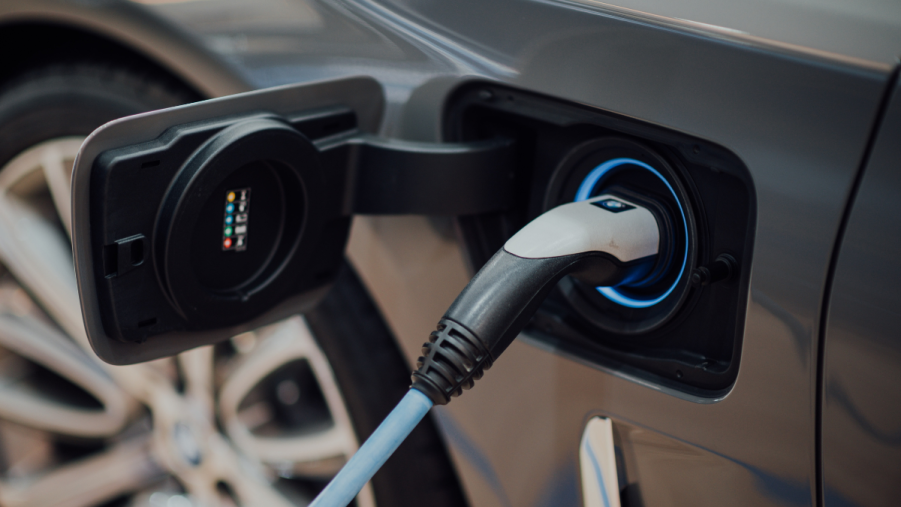
You Can Own an EV Without a Home Charging Station: Here’s How
EVs have many benefits, with their zero emissions, as well as lower maintenance costs and better performance than gas-powered cars. However, one drawback for electric vehicles is charging, especially for people that don’t have access to a home charging station. You can still own an EV without a home charging station, though. Here’s how
Can you own an EV without a home charger?

If you have a home charging station, charging up your EV is easy and simple. Just plug in your electric car, let it charge overnight, and in the morning, you’re good to go. However, as detailed by InsideEVs, “more than 35% of housing units in the U.S. population have no access to a garage or carport,” and therefore don’t have a home charging station. Many of these people live in apartments. Others are homeowners that live in large cities with limited parking space — and park their cars on the street or on surface lots.
While a lack of a home charging station is a hindrance for EV owners — it’s not necessarily a deal-breaker. You can still own an EV.
Free public DC fast charging for EV owners without a home charging station

A solution for EV drivers that don’t have a home charging station is public stations for Level 3 DC fast charging. While using a DC fast charger all of the time can get expensive, this won’t be an issue for automakers that offer free charging. Many of these automakers are luxury brands, such as Mercedes-Benz, Porsche, Audi, and Lucid.
However, if you can afford the very high prices of these luxury EVs, it’s likely that you can afford to buy a garage with a charging station. For a prospective EV buyer that wants a relatively affordable electric car that offers free charging, your best options are Volkswagen, Polestar, and Hyundai:
- Volkswagen ID.4: 3 years of free 30-minute charging sessions via Electrify America
- Polestar 2: 2 years of free 30-minute charging sessions via Electrify America
- Hyundai Ioniq 5: 2 years of free 30-minute charging sessions via Electrify America
Something to keep in mind, though, is that if you frequently fast charge an EV beyond 80%, you could reduce the capacity of the battery. Also, unless you plan on visiting a fast charger several times each week, you should get an EV with at least 200 miles of driving range.
Other charging options for EV owners without a home charger
In addition to fast charging, other options for EV owners without a home charging station is to use “public chargers on the street or at driving destinations like hotels or charging during the day at work.” However, the availability of these types of charging stations is even lower than DC fast chargers. Another option is to check with your employer. Some companies have on-site EV chargers and offer free charging.
We’re still in the infancy stage of EVs and EV charging. The charging dilemma might not be as much of a problem in the coming years, though. For one, the recently signed federal infrastructure bill includes $5 billion for EV charging infrastructure, with the aim to build 500,000 public charging stations by 2030.
Also, EV charging technology is rapidly advancing, and the driving range of electric vehicles is getting better every year. For example, Ford is working on an EV charging station that charges as quickly as a trip to the gas station. Also, this year, Electreon Wireless will build an electric road in Detroit that can wirelessly charge an EV while you drive.


